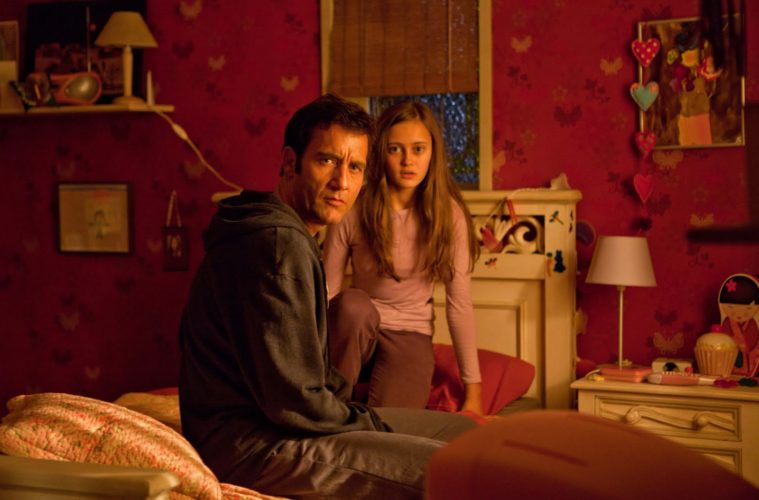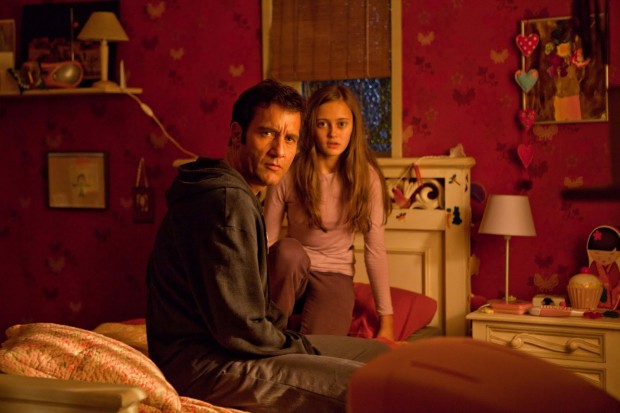
With his follow-up to 28 Weeks Later, director Juan Carlos Fresnadillo‘s Intruders takes place in the paranormal realm, but still contains the horror elements he has previously dealt with. I had the chance to check it out during its showing at SXSW and the film ended up being an interesting mix of how perspective can warp reality and how the familial secrets we keep can have devastating effects. I sat down with Fresnadillo as we explored recurring nightmares, how he made this a personal film despite not writing it, the use of CGI versus practical, and much more. Continue below for our full conversation as he opens up on audience reaction in the states.
Juan Carlos Fresnadillo: I think there are some differences between countries and cultures and the perception in Europe. I have a good notion about the perception of the audience with the movie there. But, that’s why now I’m so keen to watch how the audience here is going to react. Because Intruders in some levels is a story about fear but we doubt fear, you know? And its some kind of thought-provoking concept which is put in you and pressing you to go deep in the story and to think about sometimes to your own personal feelings as well.
Going from 28 Weeks Later to this film is clearly it’s a very big jump in what kind of story you’re telling and the way that you tell it. Did you enjoy going from something where there’s a clear and present threat, to now all of a sudden, “is there a threat?”
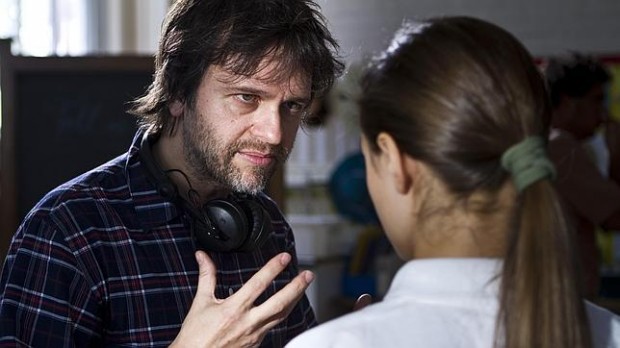
Yeah, 28 Weeks Later it comes from the idea that to show, to explore the horror, the very real danger that you have to face, and in this one, the fear and the horror comes from yourself, comes from your mind, from your disturbing thoughts, how you create those monsters because there is something inside. This movie, which has a psychological mood, it’s not a real danger as a zombie but sometimes it could be worse than the real zombie.When you have a zombie in front of you, the only thing that you have to know is you have to run away from him.
It’s survive. The survive feeling is the emotional drive, so it’s easy, you know. But when you’re facing some kind clear psychological ghost, you are completely drawn into, into the dark. You don’t know exactly what happened, what you should do in terms of defeating and destroying that danger that is surrounding your house in this case.
You mentioned that this is kind of a personal story, but you didn’t write this. Where did your personality leak into this particular film?
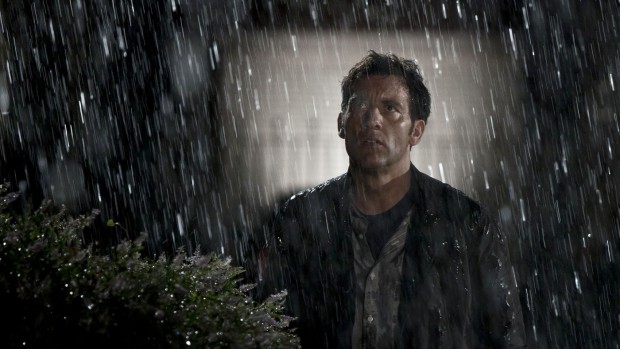
I believe that to make a personal movie – this is something I discovered in this movie – you don’t have to write the story. The way that you make the movie, the way that you choose the cast and the way that you put the camera and the way that you director the actors the way that you deal with the screen writers and polishing the screenplay and not writing with a computer, but working with them is the process. It allowed me to work with total freedom and to make the movie more personal, which is something that you say, “how can you do that if you’re not writing?” Because, we had a very open scenario in terms of the writing.
I was working with the writers every single week and we had a lot of discussions and then they came back with the new material and then we discuss again. So it was a very collaborative work, they were the hands writing, but it came from many meetings and many discussions. And for me it was important, not to be deep in the screenplay, because I’m loving this discovery which is when you write, you fall in love with everything that you write, with every single line.
They say you become precious about the words.
Yeah. And then you want to protect that creature the whole time and sometimes it’s right, but sometimes it’s not right. And specifically in this movie I felt that it wasn’t right because it is a very human story at the end of the day, and if I want to create a very human story, I thought that I have to be open to something that in my previous movies I didn’t develop so well, which are, the actors. I have to work with the actors so close and to make these characters believable and that’s why I decided not to write the story and to have the freedom to change every single thing with them in the rehearsals. And that was the process that I think we create the movie in the rehearsals, trying to figure out how it works, using the material of the screenplay as a inspiration but not as something that we have to follow in a very strict way.
And that was so important for me to make the movie because in one dimension, the movie is talking a about a very universal theme which is the region of fear and that’s why I have to have a step back from the story and to watch the movie as a painting and trying to work with all the people, which was working in the movie in a very open way. That was, in some levels, why I consider this movie as personal as the other ones because I was exploring in that way as I told you, and on the other hand I think there are many things in the story which are influenced by my experience when I was kid. And about some secrets that I didn’t know about my family, but those secrets were flying around. Because it’s funny, when there is a secret in a family, I think that that is affecting the whole life of the family.
…keeping it.
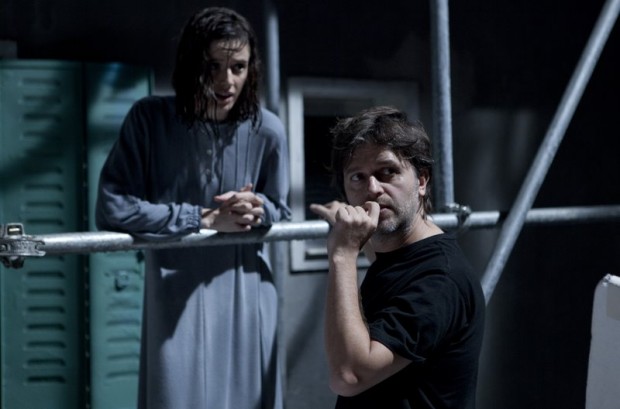
Yeah, and you have to deal with that sometimes and I think it’s a big mistake to hide certain things in the family because at the end you’re getting and you’re growing these things in a very dark place and maybe it’s going to affect this generation in very heavy way, or the next one. And I felt that in my family and I felt that there was some secrets in my house that nobody wanted to tell me but those secrets were affecting me and making me feel so miserable when I was a kid. I needed to show that in the movie, and that was the reason for making Intruders.
Interesting. This deals with nightmares at a certain sense, and everybody has experienced a nightmare at one point or another. Have you experienced one recently?
Always. I am living with nightmares. You know you can have recurring nightmares, but I have especially one recurring nightmare, which is always the same; waking up in the middle of the night and there is somebody in the dark in the corner of my room. Always. And that person is looking at me. And it was funny because I love to do therapy, since I was so young. And in one session, just before making the movie, my psychiatrist puts me in the place I go to, created some kind of hypnotic thing, and then we explored that moment of waking up and seeing that guy in the corner. And she told me you have to face that, you have to walk over there.
And I remembered to do that in the session, a very subconscious thing, and it was funny because then at the end of the day I think at some levels it’s the conclusion of Intruders. That guy or that person or that ghost which is in the dark corner of your room, it’s yourself. It’s a part of yourself. Which is what you are hiding and then that part of yourself is trying to go to be free. It’s putting itself in a very dark place. So you have to face your monsters and to walk towards them without fear. Not without fear, with fear, but it’s the way to overcome that. And it’s funny, sometimes your life affects your movies and your movies affect your life on different levels.
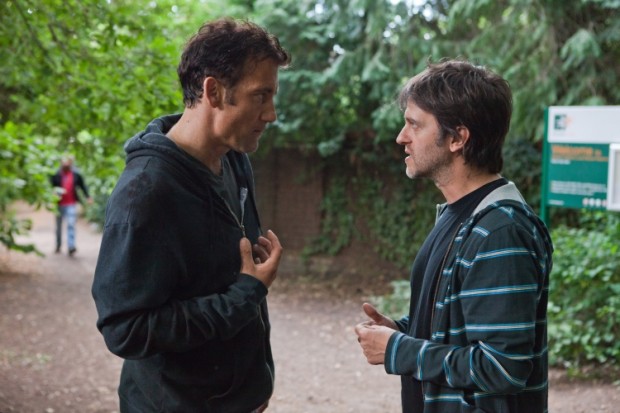
You have a very specific use of CGI in the film that transitions into something very different and it made a lot of sense in the context of the story that you were trying to tell. Was there ever a moment that you were thinking of going full-on practical or was it always kind of set up this way?
It was always in that way because I thought and I felt that the Spanish story needed a very ethereal and not clear ghost. Because in that part of the story, the real drama of the story, the reaction about hiding what happened to the boy creates some kind of very clear ghost. And the way that we show the ghost is very ethereal because it’s the completely opposite of what happened. But in the English story I thought that we have to work in the opposite way, which is there is nothing apparently, which is affecting the life of this girl and the life of this father. But then the transmission works in this level of the story as a very real thing. The way that those monsters, those nightmares passing on generation after generation, I think in order to tell to the audience, to convey the idea that if you don’t solve that every time, it’s going to grow bigger and bigger. That’s why there’s transition from some kind of ethereal form into a very real danger about a guy in a room, such a physical presence. In this case you go from a ghostly appearance into a real physical appearance.
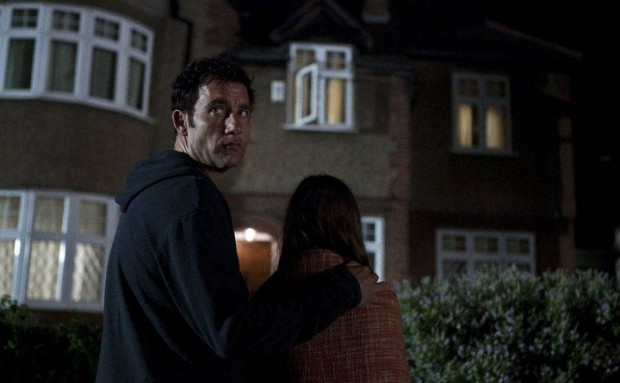
How long did it take you to cast the stuntman for this physical appearance?
It was so quick in terms of making a production because the first option was Clive Owen. And if Clive said no, I was thinking about other names, but it was fantastic that he reacted very well with the reading and he immediately wanted to do it. The longest process in this movie was the screen writing process and the cutting. The writing process in general was so complicated to jump from one language to another one is always creating problems about perception about different moods, so creating the rhythm of this movie was a nightmare. It took probably, with the screenplay and the cutting, almost one year and a half or almost two years to create the piece. It was so difficult. But the casting was fast, and the production as well. The problem in this movie was to decide the set-ups and the way that those set-ups are merging with each other. That was always the problem.
Intruders hits limited release on Friday, March 30th.

